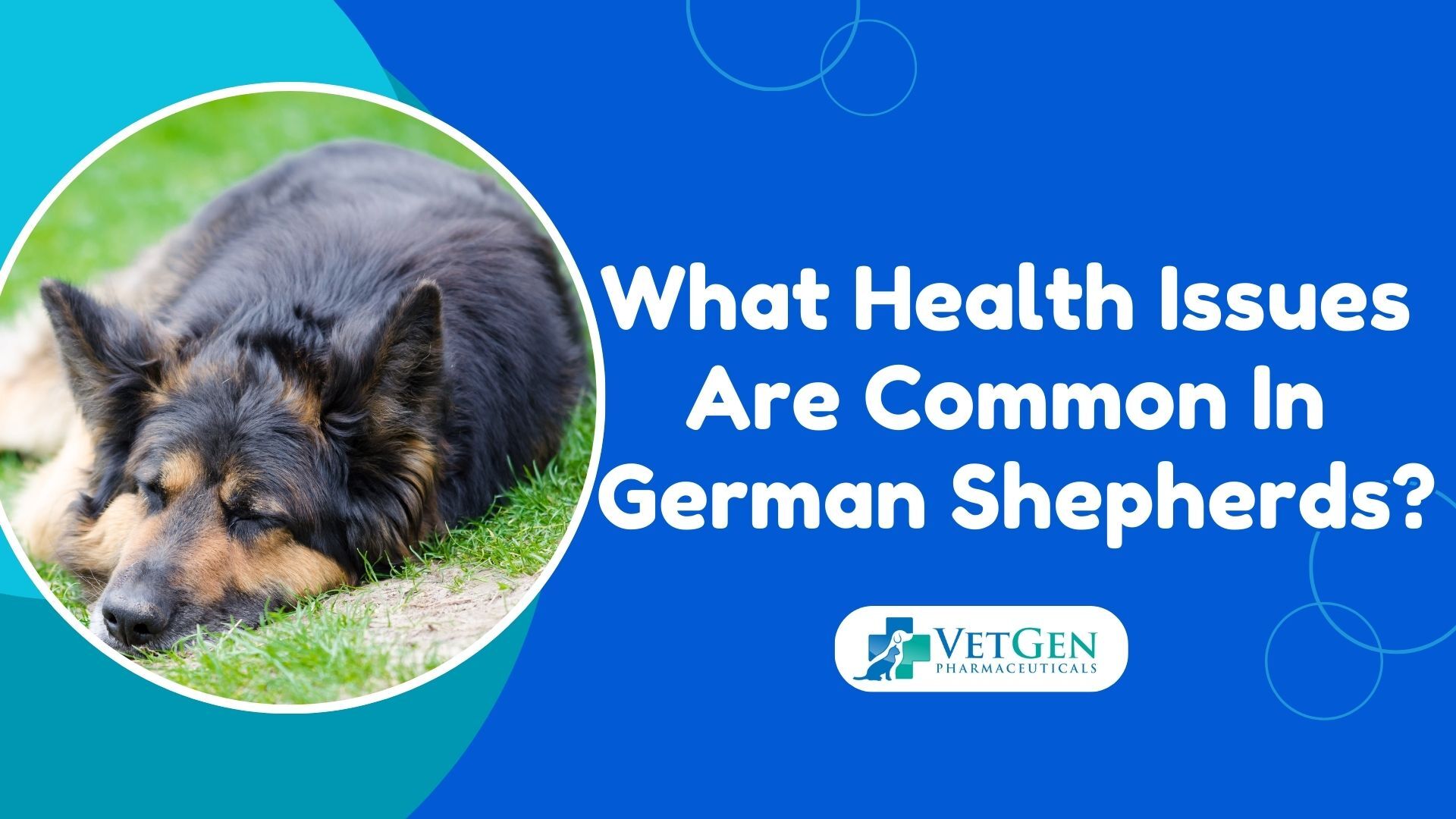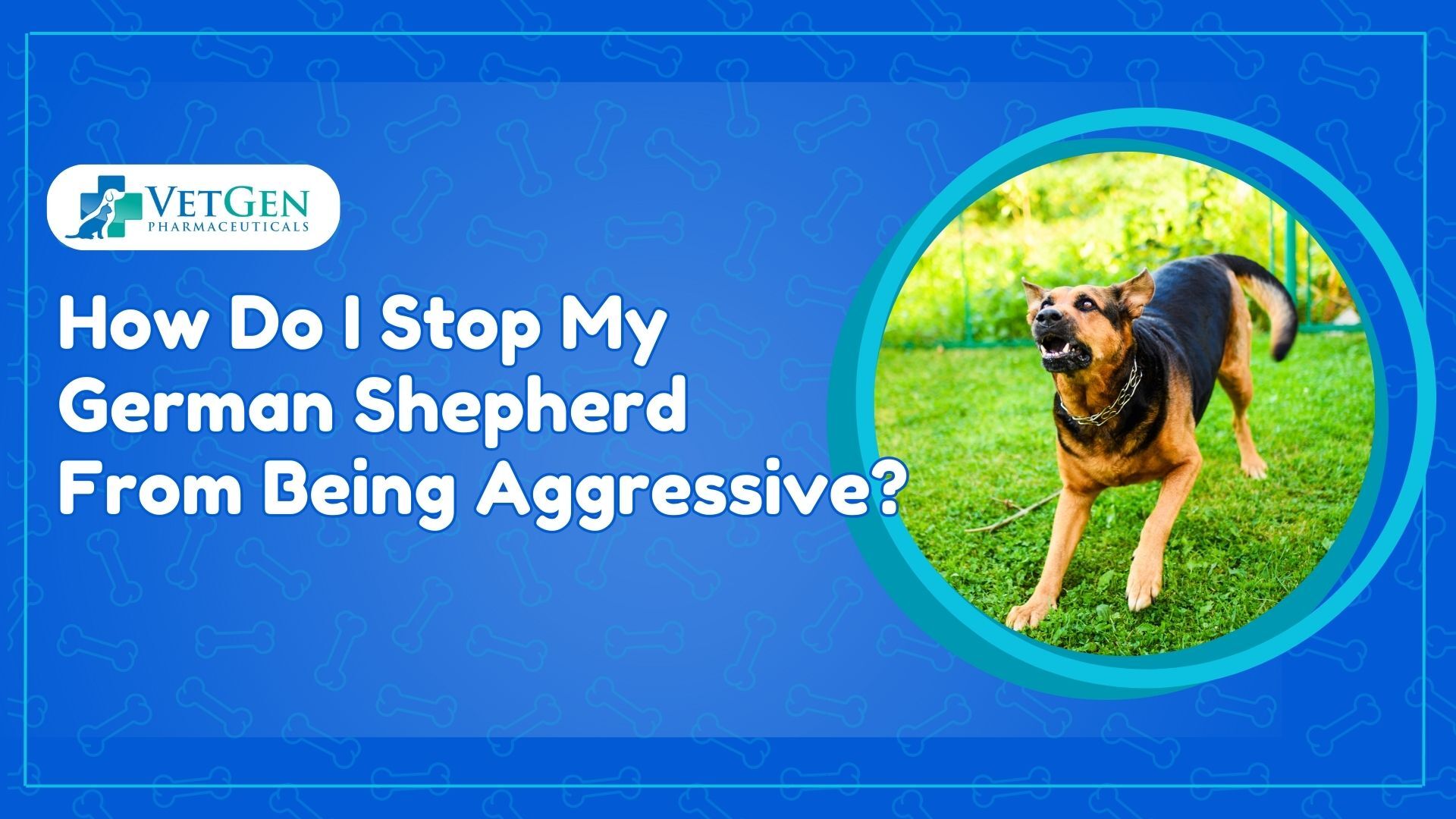Table of Contents
Like all breeds, German Shepherds are not free from some diseases that may affect them in their lifetime. Awareness of these possible problems will help you to make the right changes to ensure that your dog is healthy and happy. In this article, we will consider what diseases are inherent in the German Shepherd and how they can be cured or prevented.
1. Hip and Elbow Dysplasia
Hip and elbow dysplasia in dogs are some of the health issues common in German Shepherds. This is a genetic disorder that occurs when hip or elbow joint formation is incorrect, leading to joint looseness and arthritis.
Some of the signs include tiff rise, lameness, and decreased ability to move around. Dysplasia is not curable, but if diagnosed in its early stages and well managed it will not impair the quality of life of your dog. This condition can be prevented by taking your pet for regular check-ups with the vet, maintaining your pet’s weight to an ideal level, and feeding your pet on supplements that support joint health.
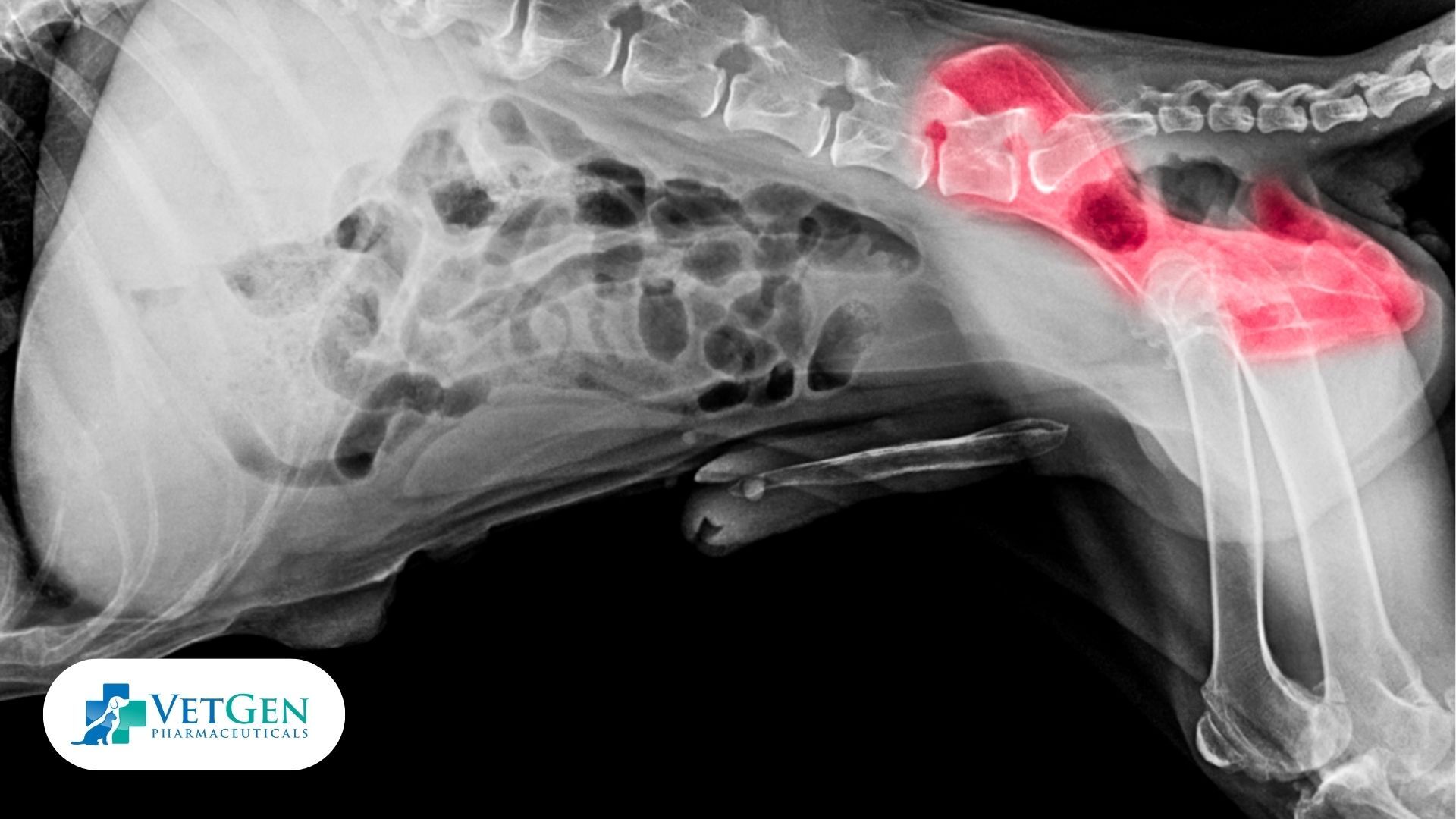
2. Degenerative Myelopathy
Degenerative myelopathy in dogs (DM) is an axonal, progressive, adult-onset spinal cord disease that affects the hind limbs and, in the later stages, the forelimbs. This condition is prevalent in the older German Shepherds and there is no cure for this disease.
Some of the clinical signs of degenerative myelopathy include weakness of the hind limbs, lameness, paralysis, and inability to rise. This disease has no cure but the dog can be helped to live a better life by undergoing physical therapy and use of devices like harnesses or carts.
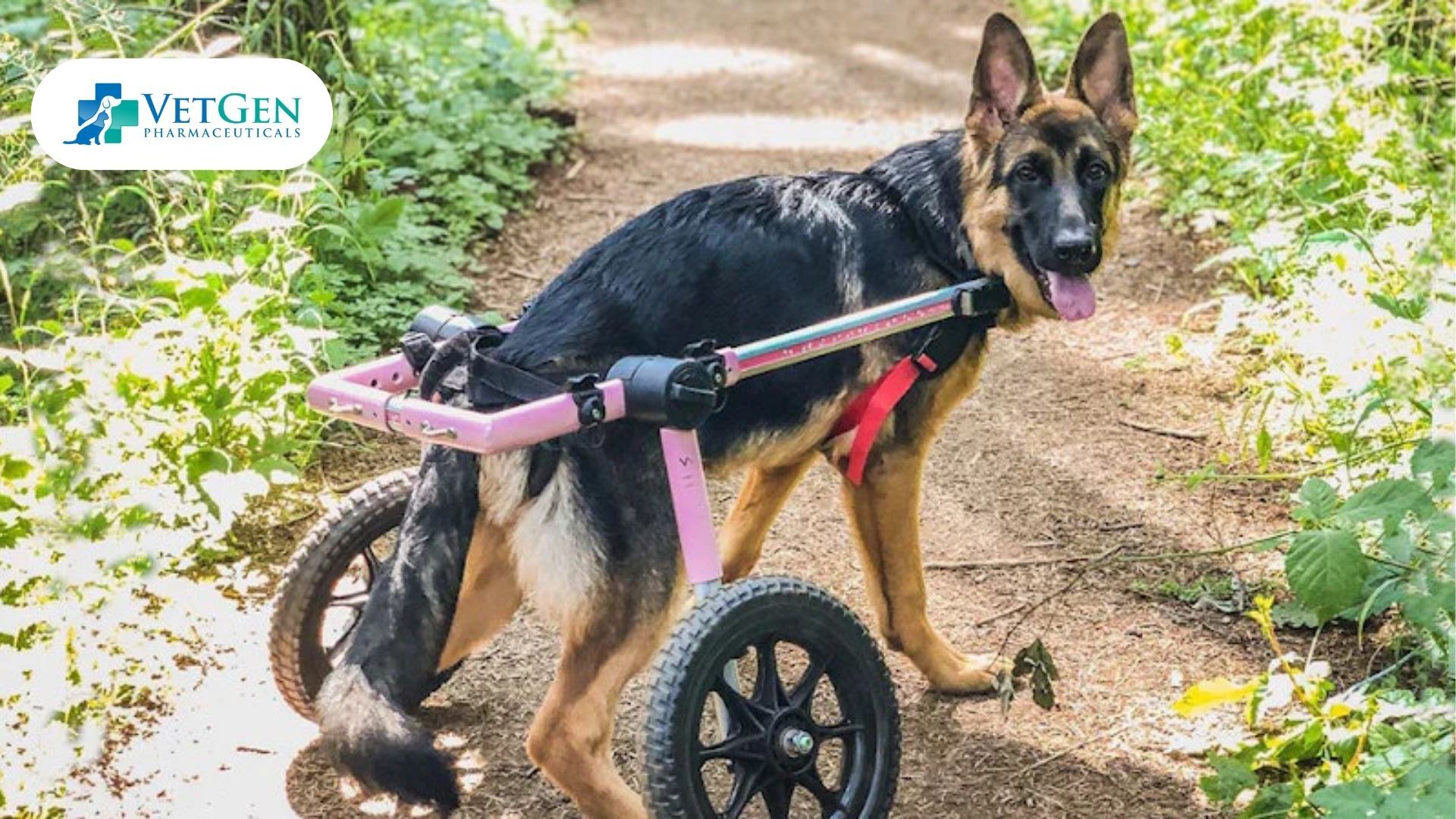
3. Gastric Dilatation-Volvulus (Bloat)
Bloat or Gastric dilatation-volvulus in dogs is a severe disease that is common in large, deep-chinned dogs like the German Shepherd. It occurs when the stomach is full of gas and then it flips over, which results in cutting off blood supply to the stomach and other parts of the body.
Some of the signs include diarrhea, edema of the abdomen, salivation, restlessness, and signs of discomfort. Swelling is a condition that requires the services of a vet as soon as possible. To reduce the risk, feed your dog in small quantities at a time, several times a day, and avoid exercising shortly after feeding.
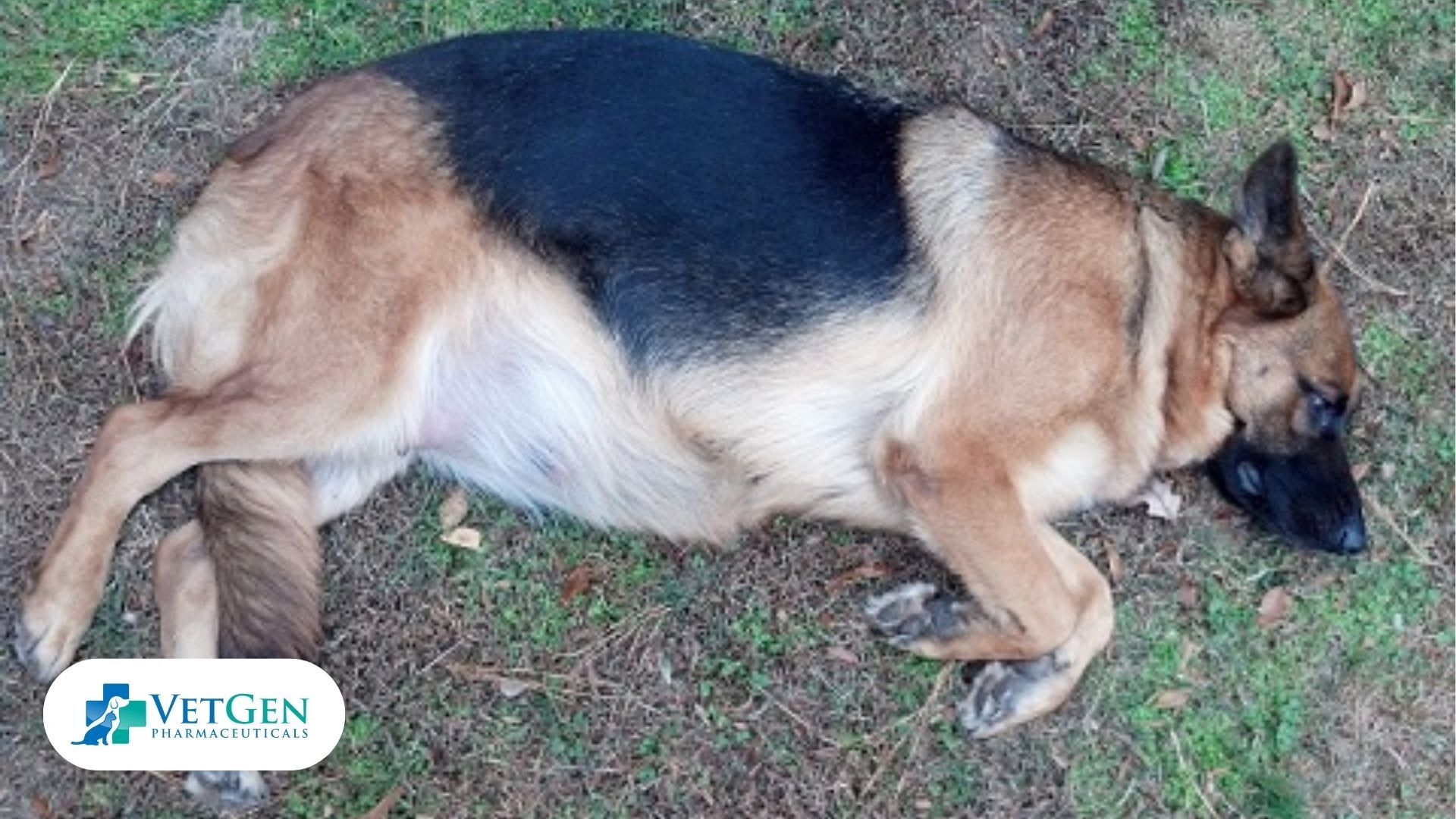
4. Exocrine Pancreatic Insufficiency (EPI)
Exocrine pancreatic insufficiency (EPI) is a clinical syndrome characterized by insufficient production of pancreatic enzymes to digest food products. This leads to weight loss and even marasmus even when the patient has normal or increased appetite.
Some of the clinical signs of EPI include diarrhea, weight loss, poor body condition, and dull coat. EPI is not a fatal disease and can be managed with enzyme replacement therapy, a special diet, and your vet’s guidance.
5. Allergies
Some of the most prevalent allergies in dogs like German Shepherds are food and environmental allergies in dogs. These can manifest themselves as skin rash, constant scratching, ear infection, or tummy upsets.
Some of the common allergens are grains, proteins, pollen, and dust mites. If you suspect that your dog has an allergy, consult your veterinarian on how to go about it, which may include changing the diet of your dog, administering your dog with some medicine, or even bathing your dog more often.
6. Epilepsy
Another health issue that may be ailing German Shepherds is epilepsy, which is a neurological disorder that causes seizures. Epilepsy can be hereditary or of unknown origin, but it can be treated with drugs and alterations in the patient’s behavior.
Symptoms include signs that are twitching, shaking, falling, or confusion during a seizure. If your dog has a seizure, you should consult your veterinarian.
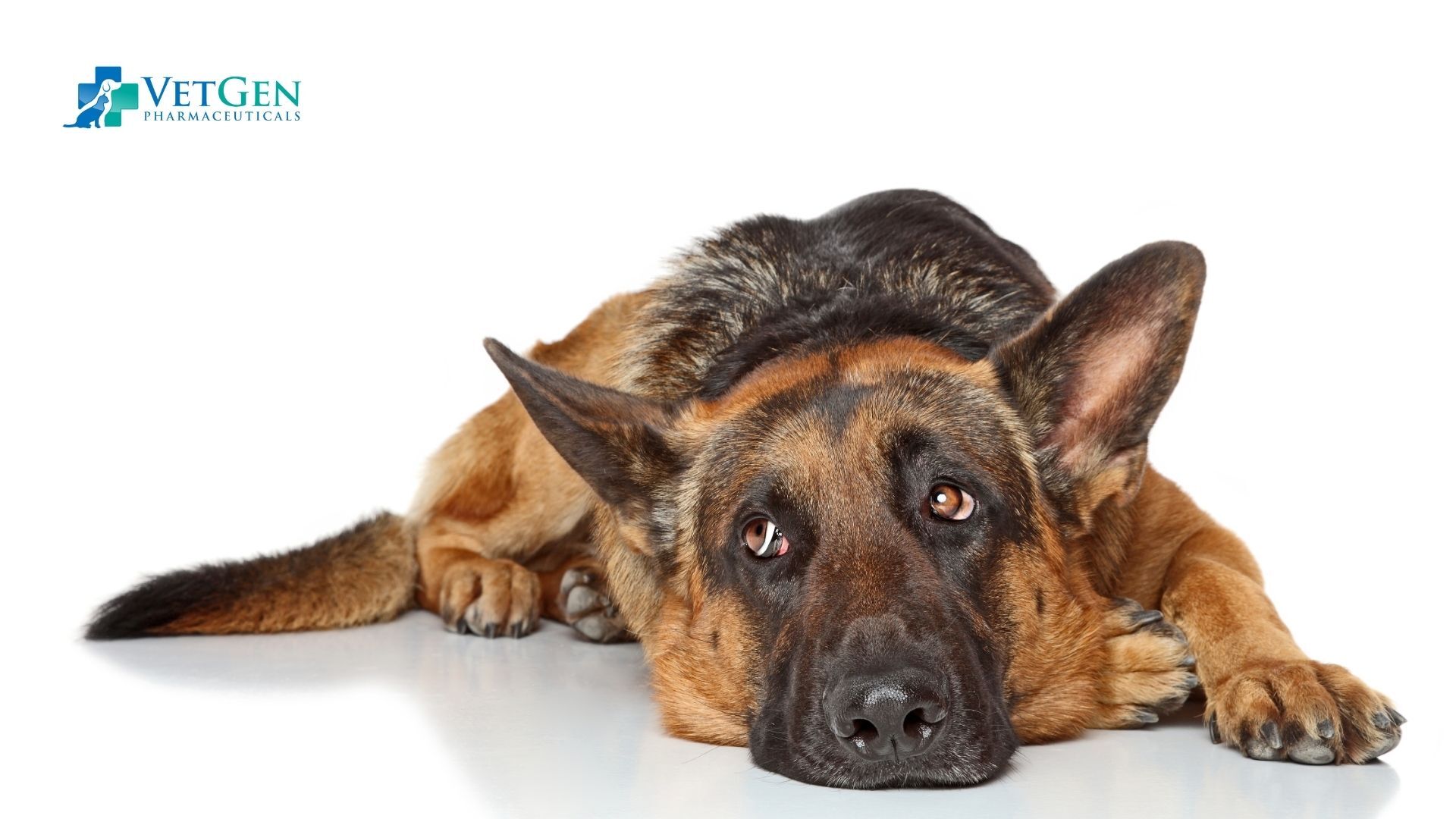
7. Hemophilia
Hemophilia is an inherited disorder of the blood clotting system, and dogs affected by this disease bleed excessively from wounds. This condition is more prevalent in some breeds, such as the German Shepherds.
The signs of hemophilia include prolonged bleeding, recurrent epistaxis, or hematuria. Unfortunately, there is no known treatment for this disease, but your dog can be safeguarded if you ensure that he or she does not get injured in any way by keeping off areas that are hazardous to your dog.
8. Perianal Fistulas
Perianal fistulas are open, chronic lesions in the perianal area, which are health issues common in German Shepherds and cause pain. The exact cause is still unknown, but it is believed to be associated with the immune system or certain body structures.
Signs include constipation and the dog having to strain during defecation, licking the area, and open wounds that can be seen. The management of the condition entails the use of drugs to minimize inflammation and, in some instances, surgery.
9. Progressive Retinal Atrophy (PRA)
PRA is a hereditary disease that causes progressive degeneration of the retina and ultimately leads to blindness.
The first symptoms of PRA include poor night vision and avoiding going out at night. Most dogs can live a normal life with vision impairment, and there is no treatment for this condition.
Conclusion
It is important to know that health issues are common in German Shepherds in order to give your dog the best care possible. Some of these diseases can be prevented or controlled by having your pet checked up by a vet, feeding it well, and ensuring that it leads to a healthy lifestyle. Being proactive will help you to make sure that your German Shepherd is healthy and happy.
Frequently Asked Questions
1. What should I do to avoid hip dysplasia in my German Shepherd?
Although you cannot completely avoid hip dysplasia, selecting a puppy from a breeder who screens for the disease, keeping your dog at a healthy weight, and providing proper exercise will help.
2. What are the first symptoms of bloat in German Shepherds?
Some of the early symptoms of bloat include; distension of the tummy, salivating excessively, pacing, and whimpering. If you observe these signs, take your pet to the vet immediately because bloat is fatal.
3. What are the signs that my German Shepherd has EPI?
Some of the signs of EPI include diarrhea that is persistent, weight loss even with ravenous hunger and a lifeless coat. If you observe any of these signs, you should take your pet to the vet for diagnosis and treatment.
4. Are there ways to manage allergies in German Shepherds?
Yes, allergies can be controlled by changing the diet, taking medications, and grooming the German Shepherds. Your vet will be able to pinpoint certain allergens and then create a plan on how to deal with them in relation to your dog.
5. Can epilepsy in German Shepherds be cured?
Epilepsy is a condition that cannot be treated but its symptoms can be controlled through medication and changes in the patient’s lifestyle. It is crucial to take the pet to the vet frequently and keep track of the progress.


